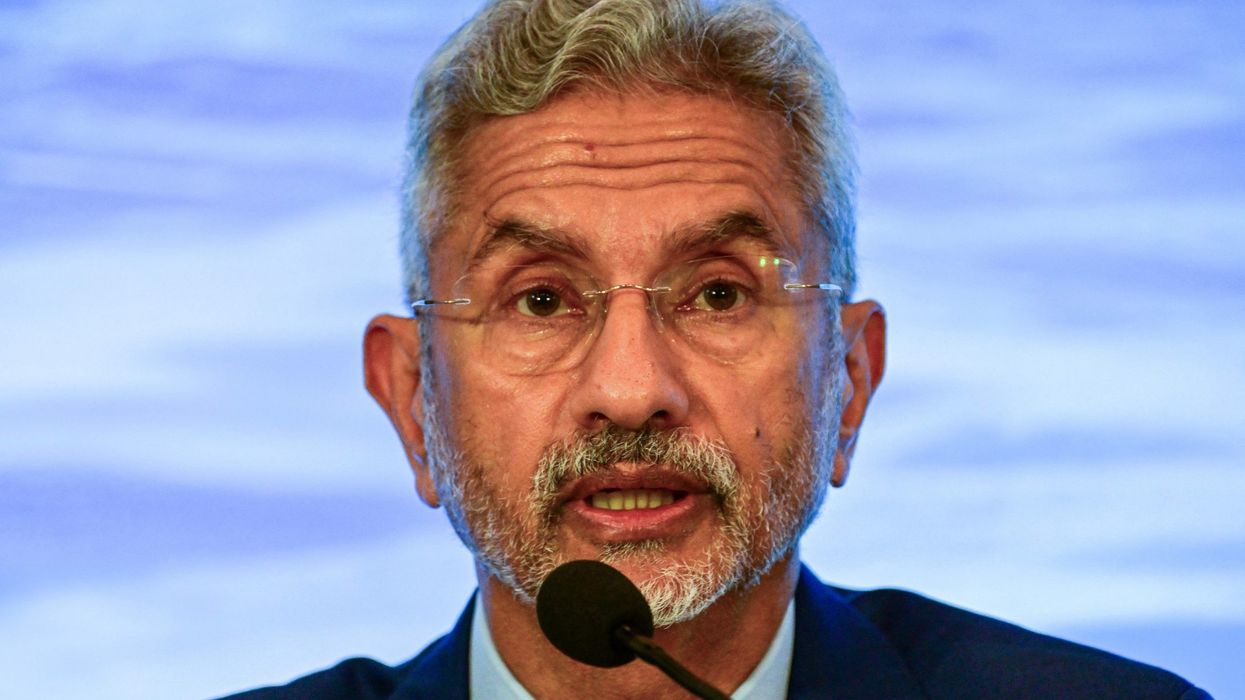The first charter flight assisting stranded Indian citizens in Israel will take off Thursday (12) evening from Ben Gurion airport, sources said, amid the current conflict between Israel and the Palestinian militant group Hamas.
Sources have disclosed that approximately 230 Indians residing in Israel are set to leave for India on a flight scheduled for 9 p.m. on Thursday (12), operating on a "first come, first serve" basis.
This flight has been arranged to facilitate the return of those who were unable to do so because Air India had immediately suspended its flight on the day fighting began on October 7, and its commercial operation remains suspended till now.
Those who are returning will not be paying any fare and the government is bearing the cost of their return.
Israel has vowed an unprecedented offensive against the Islamic militant group Hamas ruling Gaza after its fighters broke through the border fence and stormed into the country's south through air, land, and sea on October 7.
On the sixth day, the Israeli military said more than 1,200 people, including 189 soldiers, were killed in Israel, a staggering toll unseen since the 1973 war with Egypt and Syria that lasted weeks. In Gaza, at least 1,200 people have been killed, according to authorities there. Hamas has ruled Gaza since 2007.
The Indian embassy has emailed the first lot of registered Indian citizens for the special flight, the mission posted on Twitter. "Messages to other registered people will follow for subsequent flights", it said.
The embassy's tweet followed a message on the same social media platform by Minister of External Affairs, S. Jaishankar, on Wednesday (11) announcing the launch of 'Operation Ajay'.
"Launching #OperationAjay to facilitate the return from Israel of our citizens who wish to return. Special charter flights and other arrangements are being put in place", Jaishankar wrote.
"Fully committed to the safety and well-being of our nationals abroad", the external affairs minister stressed.
Ben Gurion International Airport is the main international airport of Israel. It is situated on the northern outskirts of the city of Lod.
While Israel's retaliatory offensive on Gaza continued unabated, there has been a total lull in rocket attacks coming from Gaza.
No rockets have been fired on Israel between 10 PM on Wednesday and 9 AM on Thursday, with some analysts saying that Hamas is holding its stockpile for "an eventual ground incursion."
In efforts to reassure Indian nationals living in Israel, the embassy on Wednesday said that it is monitoring the situation closely and called upon its citizens to remain calm, vigilant and follow security advisories.
"This is to assure you that the embassy is working constantly for your safety and welfare. All of us are going through very difficult times but please do remain calm and vigilant and follow the local security guidelines", India's Ambassador to Israel, Sanjeev Singla, said on Wednesday in a recorded message on Twitter.
"We are here to help you, and we thank many of you who have sent so many messages of appreciation to us. We are monitoring the situation closely and please stay tuned for any updates from the embassy. Jai Hind", Singla added.
The embassy in Tel Aviv was quick to reach out to a caregiver from Kerala who was injured in the rocket shelling in the city of Ashdod on Saturday and has been constantly in touch with her and her family in India. The Indian community has also been looking after her well-being and visiting her at the hospital. Her condition is stable.
In separate advisories through its official handle on Twitter, the mission said, "The Embassy has been working constantly to help our fellow citizens in Israel through a 24-hour helpline.
Please remain calm & vigilant & follow the security advisories". It also listed the 24*7 Emergency Helpline/Contact numbers and email - +972-35226748 and +972-543278392 Email: cons1.telaviv@mea.gov.in
The initiative received a lot of appreciation from Indians all over the world. "We thank our fellow Indian citizens in Israel and outside for the many messages of appreciation which you have sent us", the embassy said in a post. It also reminded Indian nationals in Israel to register with the embassy at the link: https://indembassyisrael.gov.in/whats?id=dwjwb
There are about 18,000 Indian nationals living and working in Israel. A big chunk of Indians living in Israel work as caregivers but there are also about a thousand students, several IT professionals and diamond traders.
The reassuring messages had a very calming impact on some of the students who called PTI to say that "it gives them a lot of confidence".
Meanwhile, the Indian representative office in Ramallah (ROI) is constantly in touch with the four Indians living in Gaza.
ROI told PTI that “we are in touch and are trying to help all Indians but the situation on the ground constrains our options.” In addition, the Indian mission in Tel Aviv is also actively looking for ways to assist all the Indians in the affected areas.
(PTI)




